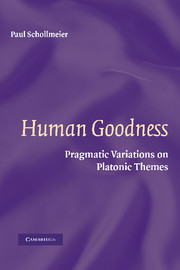2 - The Method in Question
Published online by Cambridge University Press: 28 July 2009
Summary
1. How can we know ourselves? Is there any method to the madness called self-knowledge? You might well demur if I said, We may know ourselves by experimentation. And yet who does not like to try out something new? We all do, I imagine. But if you have ever tried out something new, you have, unwittingly perhaps, performed an experiment, and your experiment may well have been a moral one. You may not have undertaken a scientific experiment with all its formal protocols. But you probably did utilize the experimental method in a rudimentary fashion. You very likely tried out a new idea by acting on it, and you likely evaluated your idea by its practical consequences.
American philosophers have made the experimental method the hallmark of their philosophy. Consider William James, for example, or John Dewey, not to mention Charles Saunders Peirce. Their express philosophical purpose was to bring this method from the natural sciences to the moral sciences. They were not the first, however. British philosophers before them took up the cause. David Hume explicitly embraced the experimental method in the very title of his Treatise. Even the ancient Greeks made use of the method. With it Socrates attempted to bring justice down from the heavens and into our hearts.
Yet despite these philosophers and their efforts, and despite our practices and their familiarity, we remain rather ambivalent about the experimental method and its moral applications.
- Type
- Chapter
- Information
- Human GoodnessPragmatic Variations on Platonic Themes, pp. 32 - 67Publisher: Cambridge University PressPrint publication year: 2006



